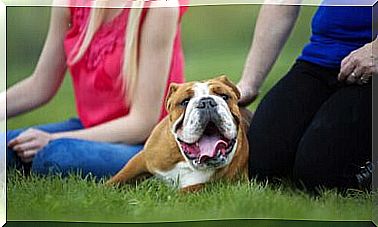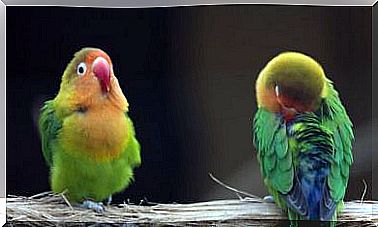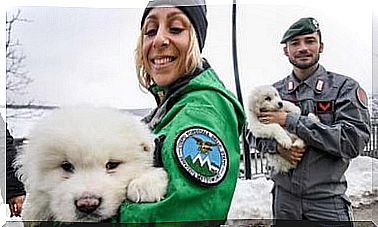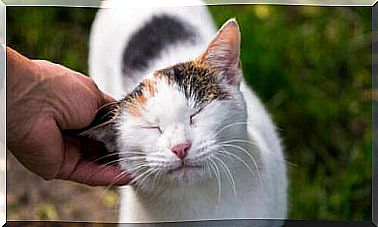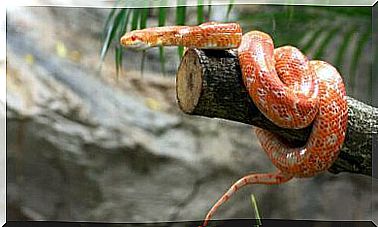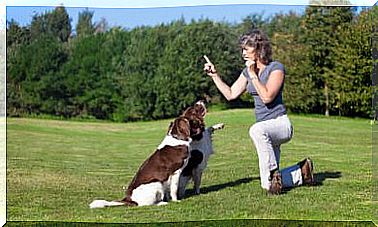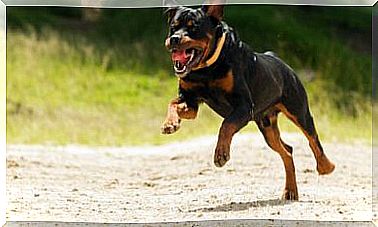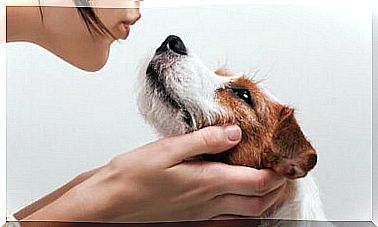What Is Canine Narcolepsy?

Imagine an afternoon strolling through the park with your pet. Your dog is running happily while playing with other dogs when he suddenly falls to the ground in a deep sleep, as if he were in his bed. What could have happened to him? A heart attack? Perhaps your dog is suffering from an episode of canine narcolepsy.
First, don’t panic. The narcolepsy is not a fatal disease, but it is necessary to pay attention to it. This nervous system disorder occurs primarily in young dogs or cats, just as it does in humans. Read on to learn more about canine narcolepsy!
What is an episode of narcolepsy in dogs like?
During an episode of narcolepsy, the animal completely collapses and loses movement. Literally, the animal falls into a deep sleep as if entering REM sleep, the phase in which the eyes move quickly and lack muscle tone.
On many occasions, a narcoleptic attack occurs when the dog is at a very active moment physically, that is, when he is playing or running. After falling, after a few seconds or minutes, he wakes up abruptly as if nothing had happened.
Sometimes narcolepsy is linked to another neurological disorder called cataplexy, which causes temporary paralysis of muscles and loss of reflexes. Generally, the dog is aware of the people around him and can be awakened through physical or sound stimuli.

What Causes Canine Narcolepsy?
Canine narcolepsy is linked to genetic or hereditary factors, although it can stem from other pathologies, such as obesity and immune system disorders. Research related to this neurological disorder has determined that the cause is a neurotransmitter called hypocretin.
According to these studies, when abnormalities in the receptors of this neurotransmitter occur, the normal regulation of sleep-wake cycles is interrupted.
In addition, the breeds most likely to suffer a mutation in the gene that give rise to these receptors were identified: labrador retriever , poodle, pinscher and dachshund .
Diagnosing Canine Narcolepsy
The fact that a dog suddenly falls into a deep sleep is not a determining factor in the diagnosis of canine narcolepsy. Other factors must be analyzed and a long follow-up must be carried out.
Ideally, performing a PCR to detect the mutated gene within the dog’s genome would quickly remove the veterinarian’s doubts. However, this test is not done in all laboratories around the world and can be very expensive.
Thus, it is more likely that the veterinarian will ask for continuous monitoring of the allegedly narcoleptic episodes suffered by the animal:
- What was the dog doing immediately before?
- How long does the supposed episode last?
- Detailed description of the attack.
- Determine if there is a predecessor stimulus to try to provoke an episode in the clinic itself.
The symptoms of canine narcolepsy can be assimilated or produced at the same time as other types of conditions, such as heart disease, diabetes, or canine epilepsy. For this reason, your veterinarian will likely want to do other types of blood, urine, and biochemical tests to rule out other illnesses.
Can a dog be cured of narcolepsy?
Unfortunately, there is currently no specific and decisive cure for the treatment of canine narcolepsy, just as there is no cure for narcolepsy in humans. However, determining the factors that can cause a dog to have an episode can help prevent future attacks.
If, for example, the dog usually suffers an episode after playing with the ball or spending a lot of time in the park, we should try to reduce or avoid these actions as much as possible.
As we said, canine narcolepsy is not a serious disorder, but if the dog falls asleep and hits his head, for example, we can be faced with a veterinary emergency.

The life of a dog with narcolepsy
The most important thing is to know that when your dog has an episode of narcolepsy, there is no pain or discomfort. So, from this point of view, the fact that a dog lives with this neurological disorder does not diminish its well-being.
If you are the guardian of a dog with this pathology, you simply must be very attentive to the stimuli that make the dog fall asleep abruptly.
Remember to avoid certain situations and maintain regular communication with your veterinarian, as some studies have revealed some neuronal degeneration in the brain of narcoleptic dogs.
